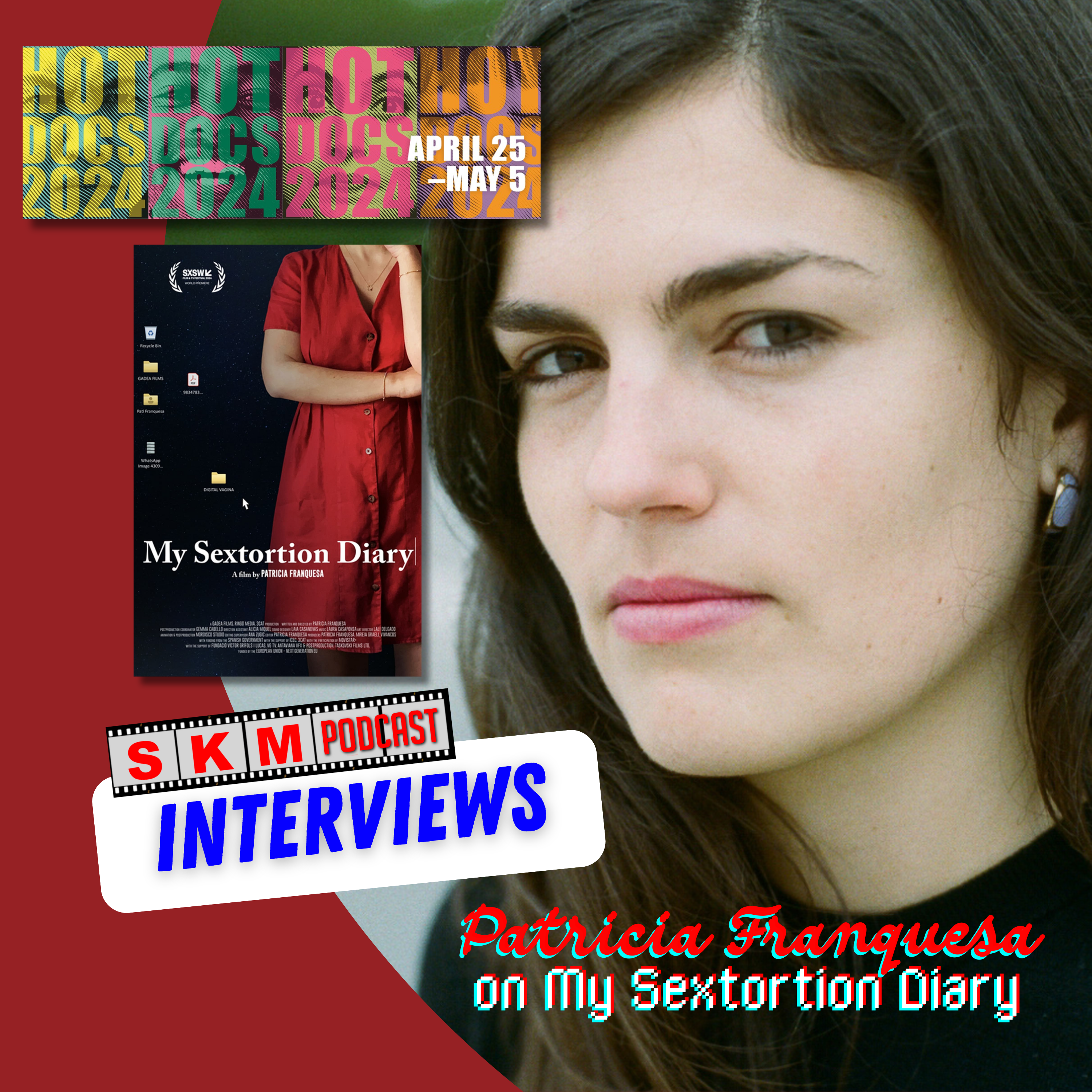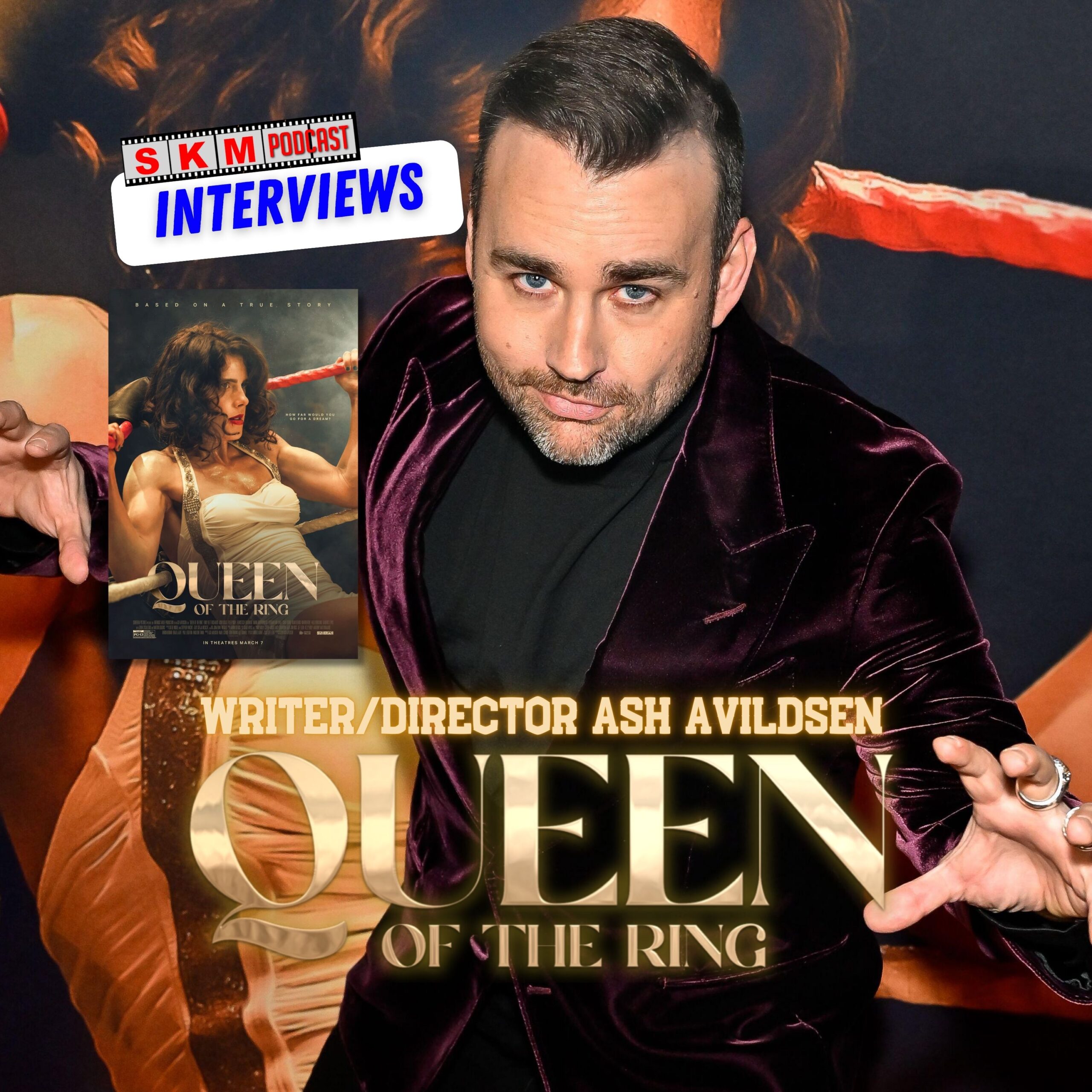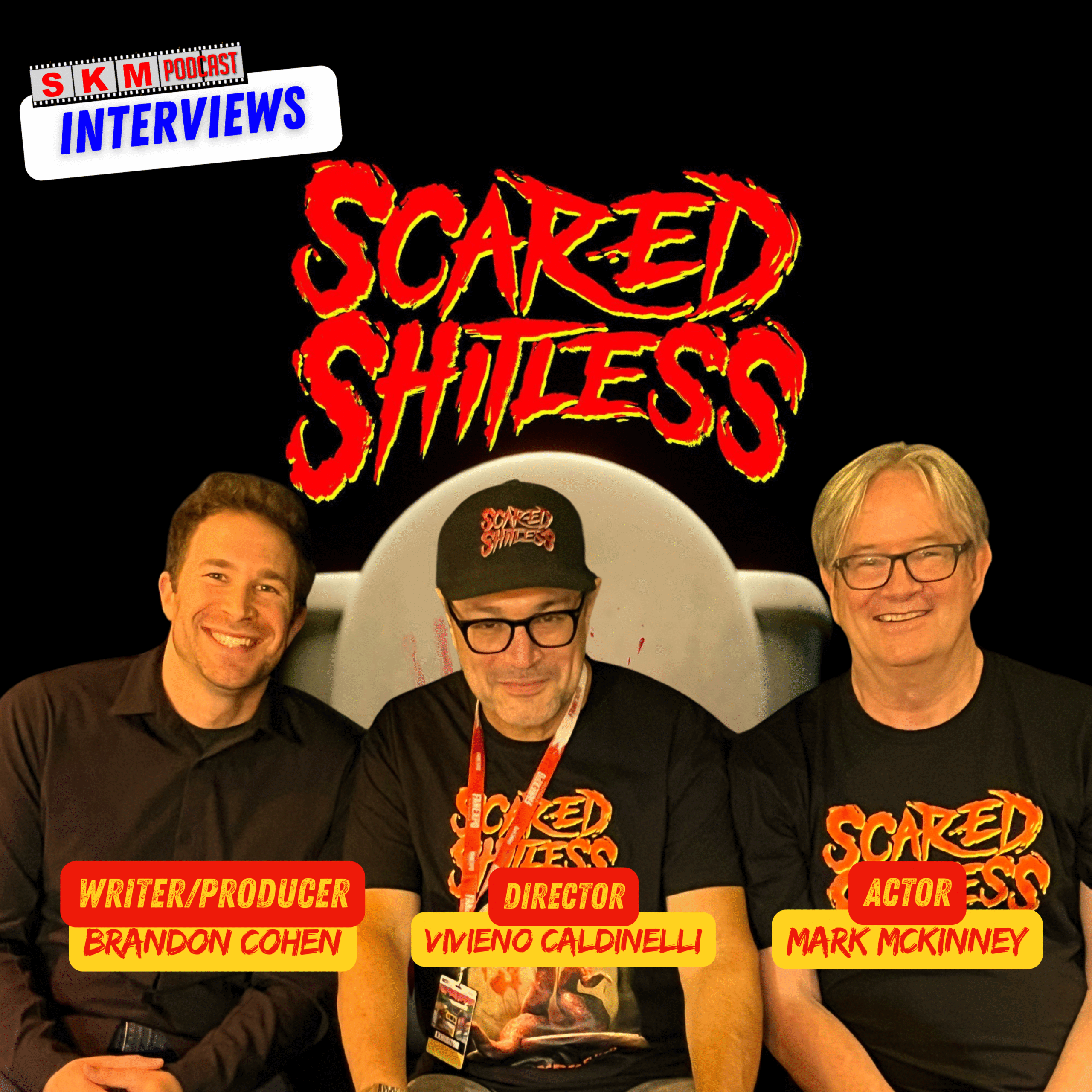[00:00:05] Speaker A: This is the Sean Kellyanne Movies podcast for Tuesday, April 27, 2021, featuring an interview with Cody Callahan and Chad Archibald about the yoke Room.
Hello and welcome to Sean Kellyard interviews on the SKM Movies podcast. Today I will be talking to director producer Cody Callahan and producer Chad Archibald about Black Fawn Film's northern golf thriller, the Oak Room, which is now available on Vod from Black Fawn Distribution. I conducted this interview in the summer of 2020 when the film played at the Fantasia Film Festival. And I should apologize in advance for the occasional Zoom echo during the interview. I hope you enjoy.
[00:00:48] Speaker B: Okay, so maybe start by talking about the original play for the Oak Room and how the film adaptation was tackled.
[00:00:56] Speaker C: Yeah. So it was a play that Ari Millen, who plays Michael, was in, and he brought it to me and Chad maybe like two years ago, and basically we immediately read it and we're like, loved it. And I think how we approach the adaptation was just, what do we keep? And, like, what do we lose?
But I think the cool part about this one is like, we kept it really true to, like, what it was.
So the adaptation wasn't that crazy.
[00:01:37] Speaker B: So I was reading the press notes for the film, and it said that the film turned very personal for you. Could you maybe elaborate a bit more on that?
Yeah.
[00:01:51] Speaker C: So when we started shooting the first part of it, my wife was pregnant and we had planned to shoot the whole movie, obviously before my son was born. But just due to some casting and scheduling and stuff, we ended up shooting a few days and then we took three or four months off where we kind of finished casting and we built sets and stuff like that. And in the middle of it, my son was born.
It's. Since the movie itself is about father and sons, I was sort of drawing parallels with my relationship with my father. But then, you know, when my son was born, then you had the three generations. So it really.
I don't think it really changed what I was going to do. It just sort of amplified some. Some decisions and obviously made the weight of some of the conversations, especially Steve's dad, more. Just gave. Gave everything a little bit more weight for me.
[00:02:55] Speaker B: Okay, so you already mentioned that Ari Millen was already in the play that was based on. So how did you untackle the rest of the casting?
[00:03:03] Speaker D: Yeah, we.
The rest of the casting was actually all. Sorry, I'm gonna.
Yeah. So the rest of the casting was actually, we went out and we found all actors. That one we were really fond of already. Like, we didn't do auditions or anything like that. We reached out to actual people that were like, just because the age range and everything, it was like, there were people that we've seen in other films or some people that Ari had worked with, some people that breakthrough had worked with in the past.
But we just knew that going into it, these actors would have to run on, like, 15 page days. Like, there was days where we'd go and we'd sit down and Cody would call action. And we'd just watch for 15 minutes while they played the whole scene out. We were trying to do big, long takes. Like, it kind of was at theater. Like, it was, you know, on stage. So we knew they had to be seasoned actors that could really be able to draw from that and do these long takes. So that was part of it. You know, RJ was a really interesting idea that I think Ari had.
And we reached out to him. So, I mean, it all kind of came together. And it was really interesting being able to sit down and kind of watch these seasoned actors come in. Because it was kind of. It felt like an anthology a little bit. Like we'd have three days where it's just two people sitting at a bar talking to each other. And then, you know, we tear down that bar and set up a new bar. And it would just be like, the next three days is like two people sit down at a bar and talk to each other. But just watching, like, the talent, like, the force of these. These actors kind of come in and, you know, take what's on the page and, you know, bring it to life was. Was really exciting. You know, the first take we could tell with everyone is like, as soon as we sat down, first take with Peter, it's like, okay, action. It's like a ten minute take. And at the end of it, it's like, yep, that was the right call. That dude just killed it. Same with Peter or same with RJ and everyone.
[00:05:05] Speaker B: So the plot features many different stories layered upon each other.
[00:05:10] Speaker A: Was it a challenge to try to balance the different narratives?
[00:05:13] Speaker C: Okay.
[00:05:15] Speaker B: Yeah.
[00:05:15] Speaker C: Like Chad said, it was like, it's kind of like an anthology. So each of these sections was kind of like shooting a short film.
So they all. And sort of approaching the script. And how we tackled sort of each sort of scene before we cut away is we needed to give it sort of that beginning and a middle and end to make sure that they all had rises and stuff.
Because you only have two people talking it. We needed to make sure that we were, like, amplifying those chunks as much as we could.
But again, I knew that we were going to stick so true to the script, and the script was so great that I had a lot of faith going in that. You know, even though it's, it's just people talking and there's all of these segments, I kind of knew that they were just gonna all fit.
[00:06:06] Speaker B: So the film is actually, I know, departure from the other films by Black Fawn. So are there gonna be future projects that move away from horror?
[00:06:19] Speaker C: Yeah. Yeah, I mean, I think we, we sort of had a brand of stuff that we were doing for, for a while. And I think, you know, the older we get, I think it's not necessarily that, that, you know, we're leaning away from horror, but I think we're spending a lot more time with, with story and scripts and so, like, we're just looking for, like, you know, stuff that excites us. Whether it's, you know, a horror comedy or a drama or a thriller, it doesn't really matter anymore. We're not sticking to one sort of, one sort of genre. We're just looking for, you know, what excites us as filmmakers.
[00:06:59] Speaker D: And also, I mean, every time we do a movie, we always sit down. When we read a script, we always look at it. If it's a horror film or whatever, it's like with a horror film, we look at it, we go, okay, you strip all the horror away. Do you still have, like, an engaging story? And I think just having that mindset is, like, when we read stuff now and when we create stuff, it's like, it is always more about the story than the genre, you know? And there's sometimes words like we've written something or came up with an idea, and it's like, this is great. This is awesome. But I kind of feel like if it wasn't a horror movie, it'd be even better, you know, and then we start developing it that way, you know, so we kind of let that kind of concept dictate it.
[00:07:43] Speaker B: Okay, so what do you expect audiences to ultimately take away from the oak room?
[00:07:48] Speaker C: I mean, it's a, it's a, it's a movie about. It's a movie about storytellers and it's about storytelling. So, I mean, I hope. I hope an audience is, you know, as engaged as we were when we first read it, you know, down to, like, the days when we saw the first edit. So, I mean, it's. Yeah, it's not, it's a unique film because it's not what everybody else is sort of doing. And it's. It's sort of back to basics, so I hope the simplicity sort of speaks highly for us.
[00:08:21] Speaker B: Okay, thanks.
[00:08:24] Speaker D: Awesome. Thanks so much, Sean.
[00:08:32] Speaker A: The Sean Kelly on movies podcast is hosted and researched by Sean Patrick Kelly, and it's a production of Skonmovies.com. hosting music and transitions courtesy of Anchor FM. Episodes and show notes can be found at skrmoviespodcast, CA, and you can subscribe to us via Spotify, Apple Podcasts, Google Podcasts, and where else podcasts are hosted. Support us by joining our
[email protected] sk onmovies this has been DeShawn Kelly on Movies podcast for April 27, 2021, and I'll see you next time.


